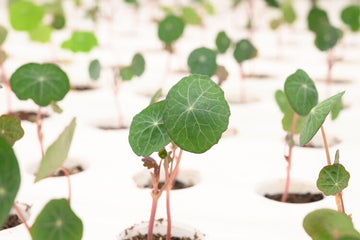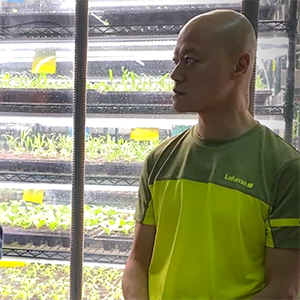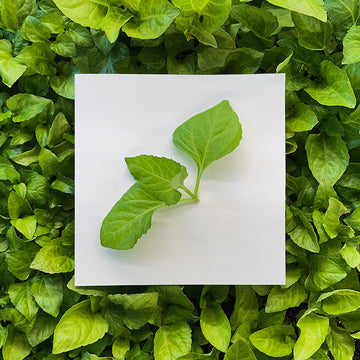Why in a place like Hong Kong Indoor Farming is the need of the hour?
by Rohail Ali on Oct 23, 2023
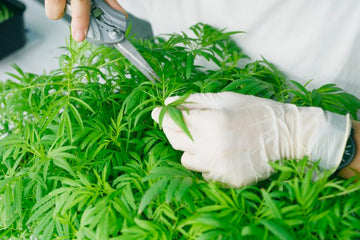
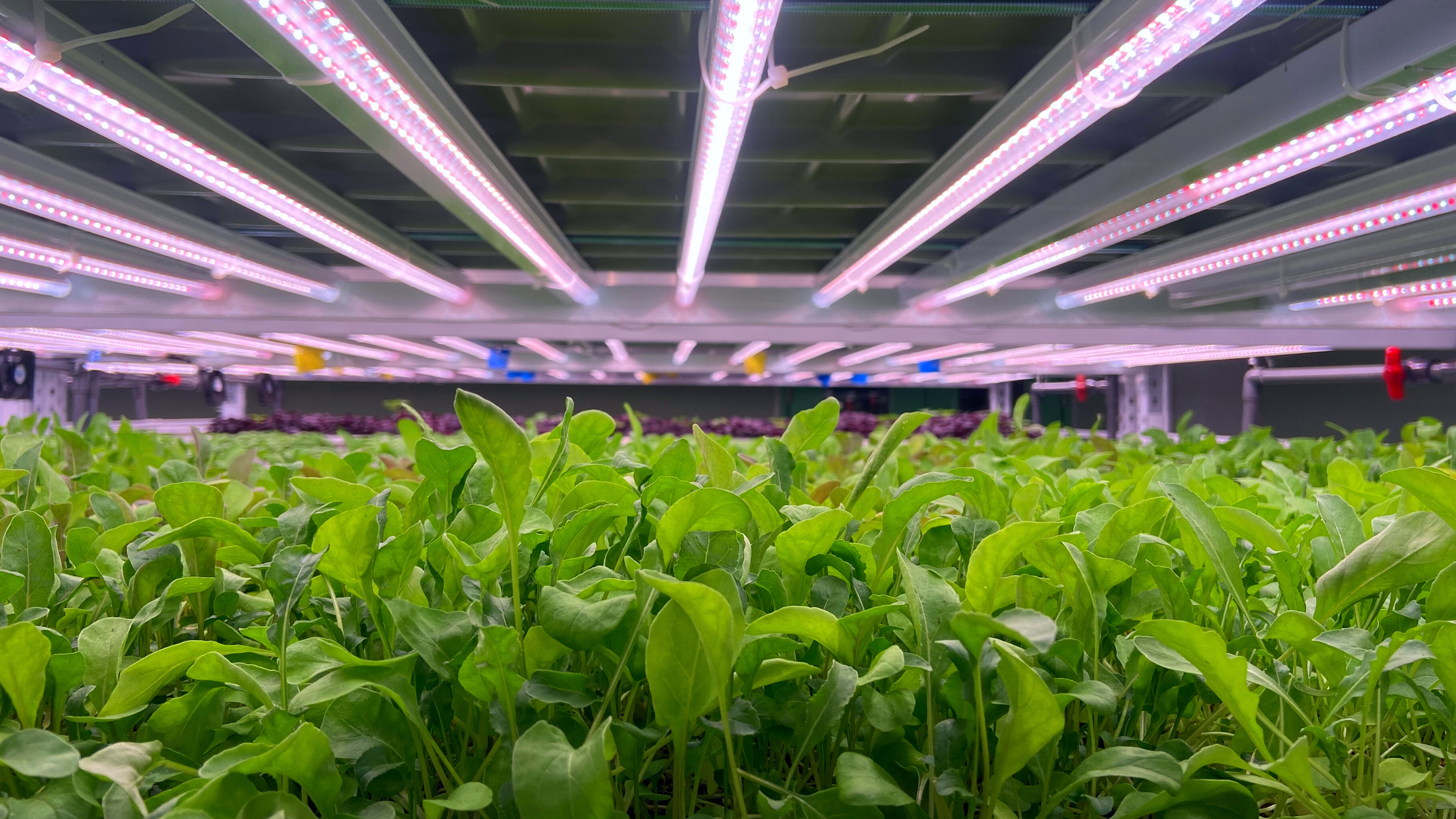
Common Farms
Food in our culture is a part of our emotion, it is our memory. For eons we’ve had a beautiful relationship with our food, there was a time when we had autonomy over how we grow, cook, and eat our food. As time progressed, concern over food got overshadowed by our pursuit to become a developed society. That might be the right decision at that point in time, but the push for real-estate development reduced the active farmland available in Hong Kong, and around 84% of our farmland has been forsaken. This left us at the mercy of food importation.
“Did you know Hong Kong imports almost 98% of our vegetables and over 90% of our total food needs! This is more than 1,980 tons of vegetables every day. ”
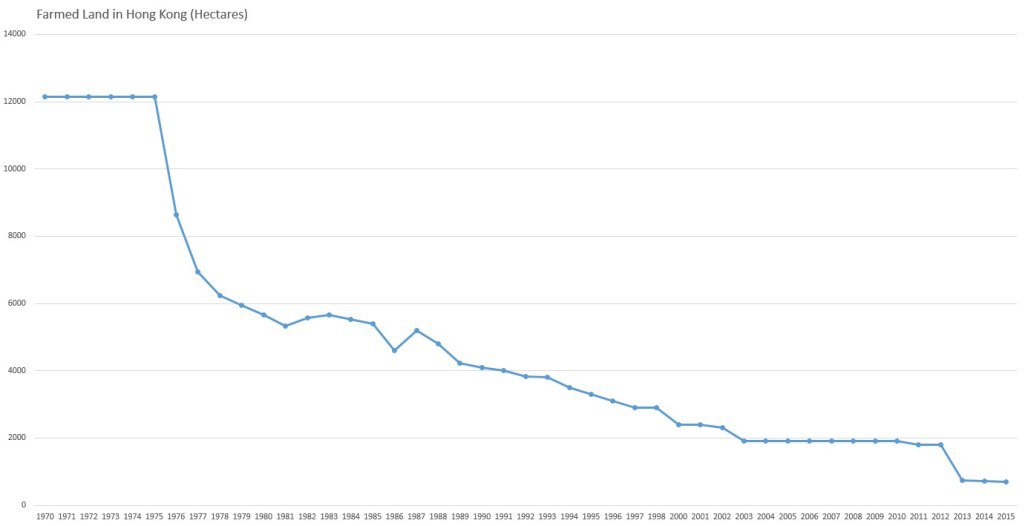
Source: Food supply in Hong Kong – HKFoodWorks. (2022, February 10)
Problems with food importation
When we import food from outside, we rely on a very long, complex, and highly unstable supply chain. The most worrying thing is the unavoidable holding up of food & vegetable items in cold storages, transportation trucks, or warehouses during the logistics process for several days if not weeks. The shorter it takes for the food to reach your plate after it’s been produced, the healthier and nutritious it is. An average tomato stays fresh only for 3-4 days after harvesting, whereas a cucumber would last hardly for two days without refrigeration. Studies show that most vegetables lose 30% of nutritional value within three days of harvesting. Take Spinach for example, which loses up to 90% of Vitamin C within two days. Vegetables are stored and stuck in logistics due to the long supply chain process, depending on from where it’s imported, and the usage of chemicals, preservatives, pesticides become a necessary evil. No wonder, this also leads to poor nutritional value of the food we consume! Ensuring that every Hongkonger should have access to fresh and organic food for overall wellbeing, and no compulsion to feed on stale food should be our collective responsibility.
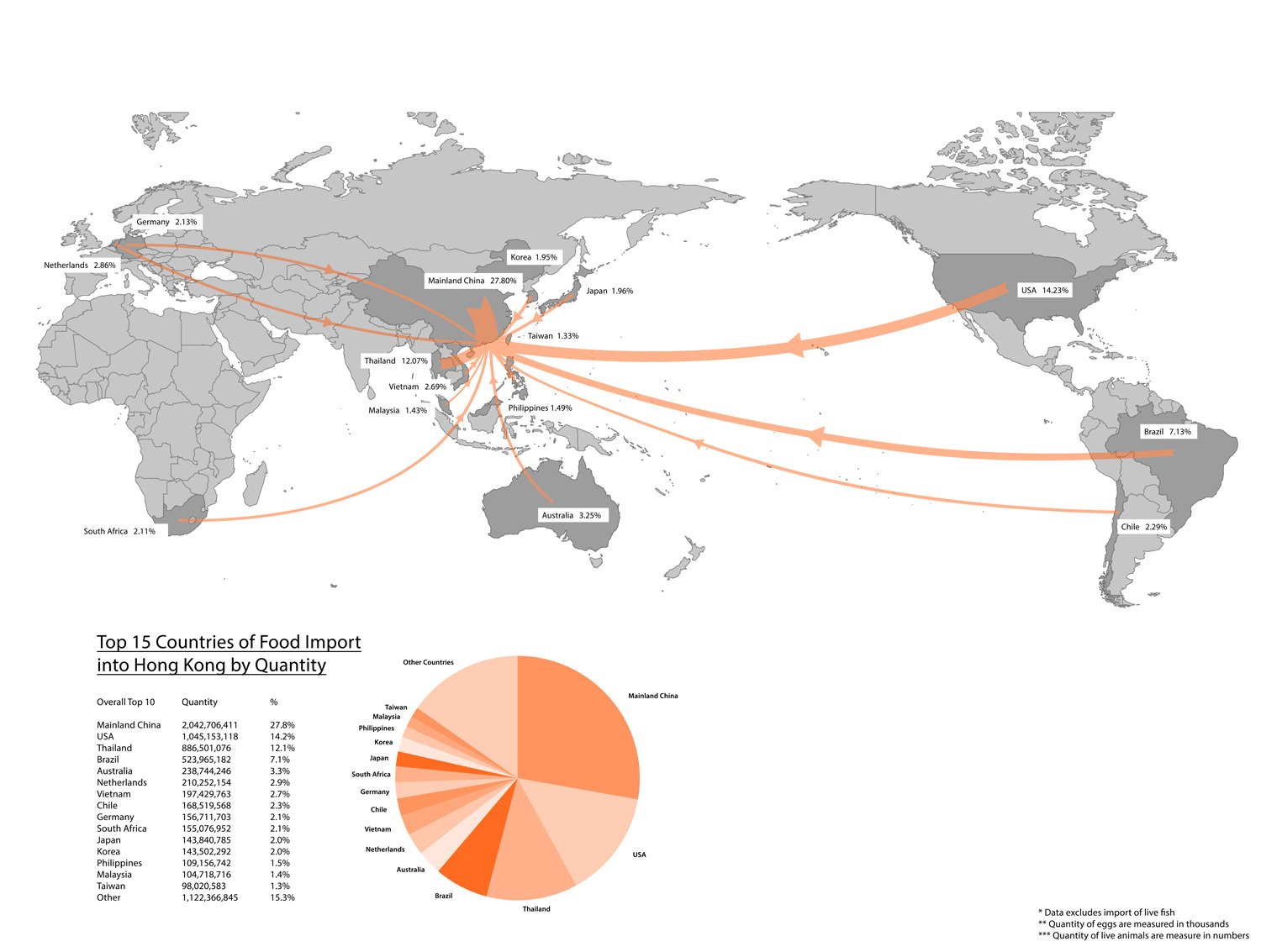
Source: Food supply in Hong Kong – HKFoodWorks. (2022, February 10)
Another thing that is problematic with food importation is obscene amounts of waste produced in the process. Research shows that within the imported food over 30% to 50% goes into waste. This not only hurts our pockets but impacts the climate as well. Waste management is already a formidable challenge in Hong Kong. We dump over 3,255 tons of food waste each day into the landfills, which is around 30% of the total waste produced in Hong Kong (Environmental Protection Department, 2020). In a study, Singapore Environment Council (SEC) and Deloitte Singapore found that around one-fifth of imported food is wasted in the supply chain causing a loss of US$2.54 billion. Many experts attribute this to damages during storage, pest management in warehouses, broken cold chain, packaging, transportation, crop diversity limitation and over-importation.

Supply Chain Disruptions caused piling up of imported good at ports and boders. Image Source: Harvard Business Review
Food importation is highly vulnerable to supply chain disruptions. We’ve witnessed how the city struggled through food scarcity during the pandemic. The supply chains slowed down, and even got disrupted as the infection spread rose to frightening levels and the city borders were closed for safety. The containers carrying food supplies were just lined up at ports or borders while the food stocks depleted rapidly.
Indoor Farming
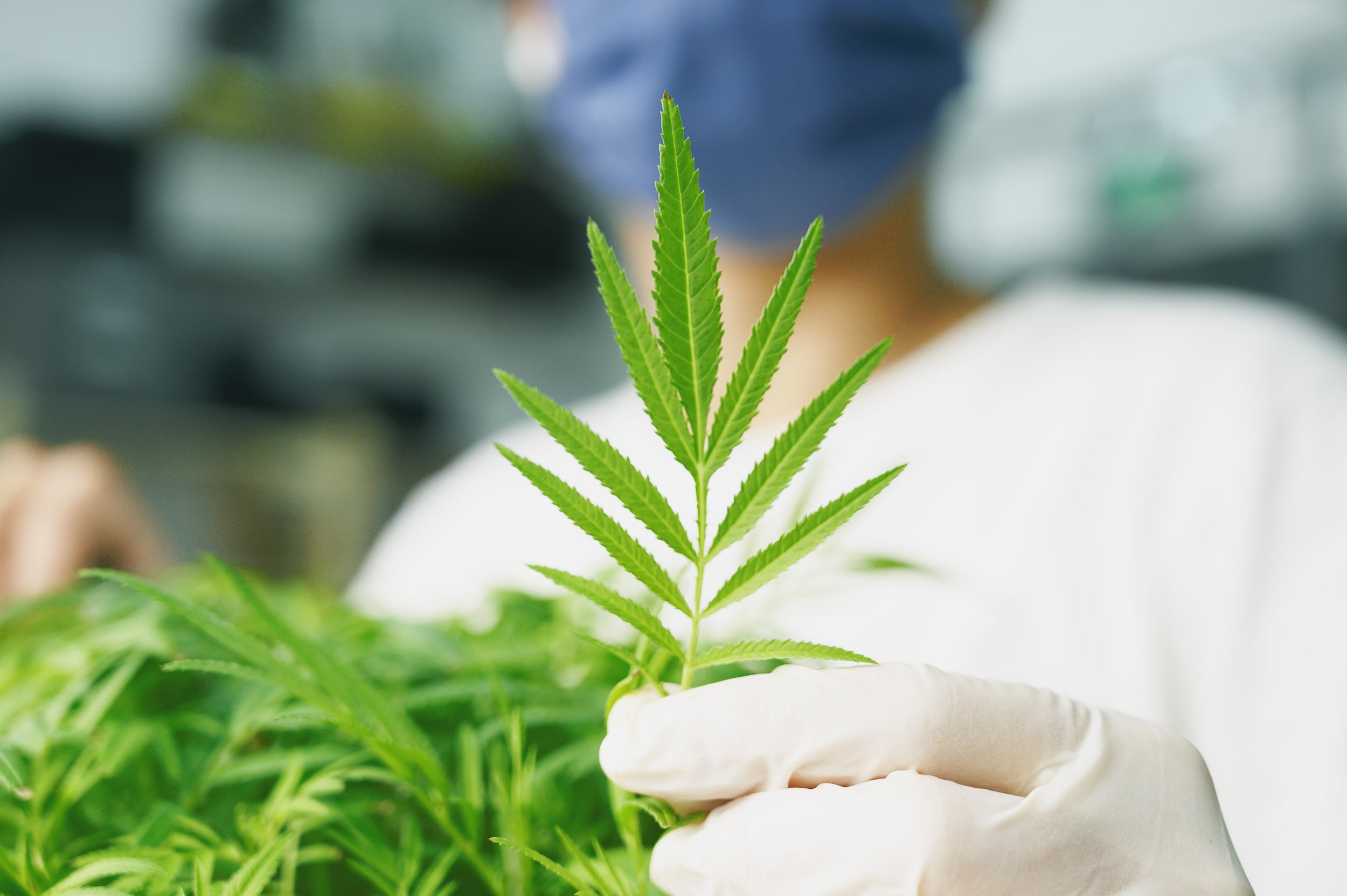
Mexican Marigold produced at Common Farms using indoor farming technology
We look at it in a very different way, and therefore, decided to bring production closer to consumption since it’s the permanent solution to complex supply chain problems. Being able to crack this problem enabled us to not only reducing wastage close to zero, but also retain the nutritional value of the produce, without chemical applications, which was lost during transportation. Research shows that indoor farming consumes 90% less water and reduces carbon emissions by 70%. Unlike conventional agriculture, indoor farming can produce ‘seasonal’ crops all year round, and in much greater quantity per square foot than an equivalent outdoor farmland. With ample amount of underutilized industrial space, it is a boon for companies like ours who want to bring fresh, flavorful, diverse, hygienic, and nutritional produce accessible at viable cost through Indoor farming. Indoor farming technology reduces reliance on our food importation and contributes to the health index of our people by providing fresh, organic, pesticide-free crops, which are not stored for days to weeks during the logistics process and are grown free from herbicides and synthetic fertilizers. Growing vertically in an efficiently controlled atmosphere helps us grow specialty herbs, microgreens, and edible flowers and deliver fresh produce to the plates around Hong Kong, within hours, ensuring high levels of nutrition, flavor, and freshness.
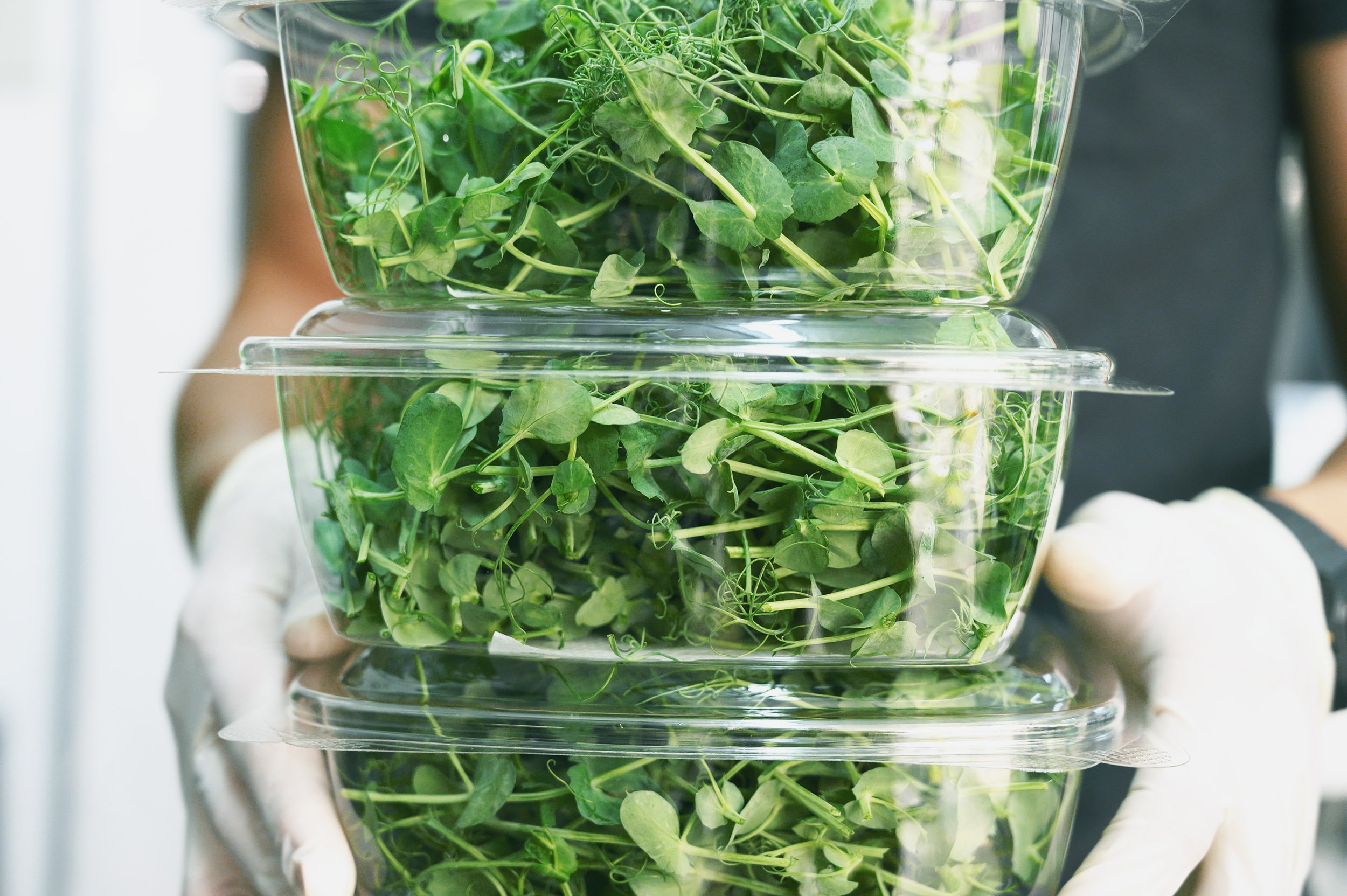
Freshly harvested Peas are delivered within hours across Hong Kong
Looking forward, we are hopeful about the future that Indoor Farming promises in reducing transportation mileage produced, adding to Hong Kong’s food diversity and sustainability goals.
“There should be a collective effort from all stakeholders - government, entrepreneurs, and communities - to push for our sustainable, secure, and brighter future.”

